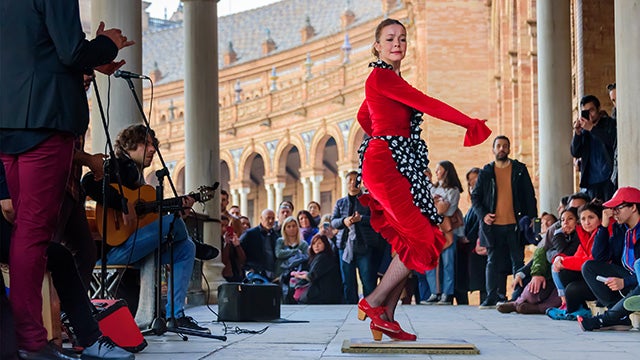Culture is intrinsic to identity, in both its individual and collective expressions. Culture is indelibly imprinted in all our products and activities. For millennia, culture traveled. Tradesmen and caravans, ships and refugees, migrants and warriors transferred, shared, and shaped the cultures we live today. Culture escapes controls, borders, and legal barriers and it circulates with the constant human flow of a roaming species. It speaks, translates, and mediates.
Diplomacy is inseparable from culture. Goods, practices, and ideas—including cultural traditions and habits—were used as tools of diplomacy. But, ever stubbornly, culture is not just what governments chose it to be.
Let’s make a necessary distinction here. Public diplomacy is governments speaking to each other. Cultural diplomacy is societies speaking to each other. Formal diplomacy remains the remit of state powers even if they enlist culture in public diplomacy projects. Public diplomacy remains a governmental action even if it successfully uses cultural and artistic means to communicate with a wider audience.
True cultural diplomacy is hard. When governments engage in true cultural diplomacy they must give communities, creators, and artists the freedom to interact and shape the diplomatic dialogue. But governments don’t like to lose control and that makes actual cultural diplomacy a delicate balancing act.
True cultural diplomacy goes against the grain of official diplomacy but is well worth trying. Just like ministers Mayu Ávila and Mohamed Benaïssa in their recent conversation on the power of cultural diplomacy, I am speaking from experience. In a prior appointment in Brussels as head of the Romanian Information Centre, my team and I often reached out to artists and creators to fulfill our public diplomacy mission to a European audience. Our one condition was that we never “used” culture. Instead, we offered it a platform. Sometimes it benefited us and sometimes it backfired. I remember an intercultural event where Romanian and Belgian jazz musicians, a Roma music band, a klezmer group, and a traditional northern Romanian ensemble started a jam session after a concert. They ended up playing well after midnight, leaving local police wondering whether to cite the musicians for breaking public noise ordinances or applaud along with the rest of the crowd.
More recently, between 2017-2019 I served as commissioner general for the Romanian French Season. Together with my French counterpart Jean-Jacques Garnier and our teams, we curated a series of over 400 projects with 600 events in the two countries over eight months. The series’ tag-line was “Oubliez vos Clichés”/“Forget your Clichés”. As such, we mainly gave the opportunity for hundreds of contemporary creators in visual and performing arts, cinema, research, and technology to bring forward their ideas and create content together, to widespread success. The project was authentic because it was cultural diplomacy at its core. Successful cultural diplomacy led to successful public diplomacy, as the art series offered Presidents Iohannis and Macron, numerous ministers, diplomats, and business delegations a fresh framework to reimagine French-Romanian relations.
There is often a personal dimension to cultural diplomacy. We may often think of cultural diplomacy as the movie stars, musicians, and artists representing their home nations, but more often, cultural diplomacy is private—the immigrants and diasporas sharing their traditions. Diasporas of all ethnic and religious backgrounds—at home and abroad—serve this dual role of ambassadors of their own cross-cultural experience.
Take, for example, Lucian Ban. Recently, Lucian, a Romanian-American jazz pianist, collaborated with John Surman, an Englishman, and Mat Maneri, an American, to produce a tribute to the Hungarian composer Bela Bartok and his obsession for Romanian music from Banat and Transylvania. The album, based on the Bartok field recordings, required quite a feat of personal diplomacy that had Lucian Ban working with musical institutions and archives in NY, Budapest, Timisoara, and Cluj. The album is a splendid dialogue musically and politically, demonstrating the political geography of music.
For Romania, cultural diplomacy also lives in our new wave cinema, creating a highly successful global arthouse presence. In 2020, former President Barack Obama included “Collective,” a brutally honest social and political documentary on the issues of the Romanian health sector, in his ten must-see documentaries of the year. The film is not flattering but its raw and critical eye connected people across borders and cultures.
For governments to engage in true cultural diplomacy, they must relinquish control of their artists, craftsmen, and cultural emissaries to allow organic expression—even if it does not completely align with public diplomatic goals.
True cultural diplomacy requires courage to create a platform for real dialogue between societies. When it is used properly, however, it has the power to bridge divides between people and nations, making it one of the strongest diplomatic tools.
Watch the discussion between Ministers
Andrei Tarnea is a Romanian diplomat currently serving as director general for communications and public diplomacy at the Romanian Ministry of Foreign Affairs of Romania. The views expressed in this article do not necessarily reflect those of the Aspen Institute.

